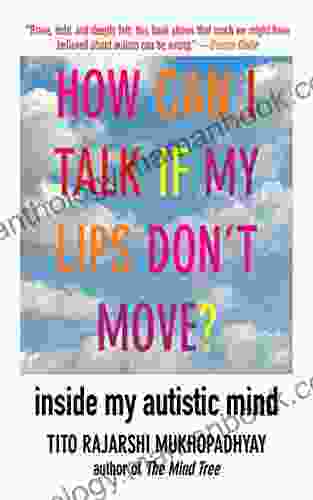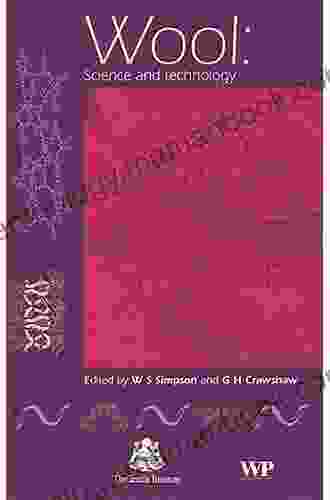Inside My Autistic Mind: A Journey of Self-Discovery and Understanding


Autism spectrum disorder (ASD) is a neurodevelopmental condition that affects how a person thinks, feels, and interacts with the world. Individuals on the spectrum experience a wide range of challenges and strengths, and their experiences can vary greatly from person to person. This article will provide an in-depth exploration of the inner workings of an autistic mind, offering insights into the unique challenges, strengths, and experiences of individuals on the spectrum.
Sensory Sensitivities
One of the most common characteristics of autism is sensory sensitivities. Individuals on the spectrum may be over- or under-sensitive to certain sensory inputs, such as light, sound, touch, taste, and smell. This can make everyday activities, such as going to the grocery store or attending a social event, overwhelming and uncomfortable.
4.6 out of 5
| Language | : | English |
| File size | : | 983 KB |
| Text-to-Speech | : | Enabled |
| Screen Reader | : | Supported |
| Enhanced typesetting | : | Enabled |
| Word Wise | : | Enabled |
| Print length | : | 170 pages |
For example, a person with autism may find the bright lights in a grocery store to be painful, while the sound of the checkout scanner may be unbearable. They may also be sensitive to the texture of certain foods or the smell of perfumes. These sensory sensitivities can make it difficult for individuals on the spectrum to fully participate in everyday activities.
Cognitive Differences
Individuals on the spectrum also experience cognitive differences, which can affect their learning, communication, and social skills. They may have difficulty understanding abstract concepts, interpreting social cues, and organizing their thoughts. Additionally, they may be strong in certain areas, such as mathematics or art, while struggling in others, such as language or social interaction.
For example, a person with autism may be able to memorize complex mathematical equations but have difficulty understanding simple social interactions. They may also be able to draw incredibly detailed pictures but struggle to write a coherent sentence. These cognitive differences can make it challenging for individuals on the spectrum to succeed in traditional school settings.
Social Challenges
Social challenges are another common characteristic of autism. Individuals on the spectrum may have difficulty understanding social cues, such as facial expressions and body language. They may also have difficulty starting and maintaining conversations, and they may prefer to be alone or with a small group of close friends.
For example, a person with autism may not understand that a person is smiling at them because they are happy. They may also have difficulty taking turns in a conversation or understanding the meaning of a joke. These social challenges can make it difficult for individuals on the spectrum to build and maintain relationships.
Communication Difficulties
Communication difficulties are also common among individuals on the spectrum. They may have difficulty understanding and using language, and they may prefer to communicate through alternative methods, such as gestures, pictures, or writing. Additionally, they may be literal thinkers, which means that they may not understand sarcasm or metaphors.
For example, a person with autism may not understand that when someone says "It's raining cats and dogs," they are not literally talking about animals falling from the sky. They may also have difficulty understanding the difference between a question and a statement. These communication difficulties can make it challenging for individuals on the spectrum to express themselves and to understand others.
Self-Awareness and Self-Acceptance
As individuals on the spectrum grow older, they may begin to develop a greater understanding of their own unique abilities and challenges. This can lead to increased self-awareness and self-acceptance. They may come to realize that their differences are not something to be ashamed of, but rather something to be celebrated.
For example, a person with autism may realize that they are not good at social interactions, but they are very good at art. They may come to accept that they are different from others, but that they are still a valuable and unique individual. This self-awareness and self-acceptance can lead to increased confidence and a greater sense of well-being.
The autistic mind is a complex and fascinating place. Individuals on the spectrum experience a wide range of challenges and strengths, and their experiences can vary greatly from person to person. By understanding the unique challenges and strengths of individuals on the spectrum, we can create a more inclusive and understanding world for everyone.
4.6 out of 5
| Language | : | English |
| File size | : | 983 KB |
| Text-to-Speech | : | Enabled |
| Screen Reader | : | Supported |
| Enhanced typesetting | : | Enabled |
| Word Wise | : | Enabled |
| Print length | : | 170 pages |
Do you want to contribute by writing guest posts on this blog?
Please contact us and send us a resume of previous articles that you have written.
 Top Book
Top Book Novel
Novel Fiction
Fiction Nonfiction
Nonfiction Literature
Literature Paperback
Paperback Hardcover
Hardcover E-book
E-book Audiobook
Audiobook Bestseller
Bestseller Classic
Classic Mystery
Mystery Thriller
Thriller Romance
Romance Fantasy
Fantasy Science Fiction
Science Fiction Biography
Biography Memoir
Memoir Autobiography
Autobiography Poetry
Poetry Drama
Drama Historical Fiction
Historical Fiction Self-help
Self-help Young Adult
Young Adult Childrens Books
Childrens Books Graphic Novel
Graphic Novel Anthology
Anthology Series
Series Encyclopedia
Encyclopedia Reference
Reference Guidebook
Guidebook Textbook
Textbook Workbook
Workbook Journal
Journal Diary
Diary Manuscript
Manuscript Folio
Folio Pulp Fiction
Pulp Fiction Short Stories
Short Stories Fairy Tales
Fairy Tales Fables
Fables Mythology
Mythology Philosophy
Philosophy Religion
Religion Spirituality
Spirituality Essays
Essays Critique
Critique Commentary
Commentary Glossary
Glossary Bibliography
Bibliography Index
Index Table of Contents
Table of Contents Preface
Preface Introduction
Introduction Foreword
Foreword Afterword
Afterword Appendices
Appendices Annotations
Annotations Footnotes
Footnotes Epilogue
Epilogue Prologue
Prologue Lynn Moore
Lynn Moore Robert C Allen
Robert C Allen Kelly Cibrian
Kelly Cibrian Best Book Briefings
Best Book Briefings Woody Guthrie
Woody Guthrie Bitel Beyette
Bitel Beyette Tia Levings
Tia Levings Daniele Mencarelli
Daniele Mencarelli John Carey
John Carey Eric Freeman
Eric Freeman Gilbert G Gonzalez
Gilbert G Gonzalez Jason Pinter
Jason Pinter Jess Kidd
Jess Kidd Rachel Mennies
Rachel Mennies Jack Whyte
Jack Whyte Michael Martin
Michael Martin Stella Marie Alden
Stella Marie Alden Peter Hathaway Capstick
Peter Hathaway Capstick Sally Larsen
Sally Larsen Tony Burgess
Tony Burgess
Light bulbAdvertise smarter! Our strategic ad space ensures maximum exposure. Reserve your spot today!

 Nathaniel PowellMy Hero Academia Vol. 1: The Origin - Witness the Birth of a Legendary Hero
Nathaniel PowellMy Hero Academia Vol. 1: The Origin - Witness the Birth of a Legendary Hero Philip BellFollow ·17.4k
Philip BellFollow ·17.4k Chance FosterFollow ·4.3k
Chance FosterFollow ·4.3k Alex FosterFollow ·2.8k
Alex FosterFollow ·2.8k Carl WalkerFollow ·15.9k
Carl WalkerFollow ·15.9k Gregory WoodsFollow ·12.7k
Gregory WoodsFollow ·12.7k Dan BrownFollow ·17.3k
Dan BrownFollow ·17.3k Levi PowellFollow ·5.3k
Levi PowellFollow ·5.3k Samuel BeckettFollow ·17.4k
Samuel BeckettFollow ·17.4k

 Vernon Blair
Vernon BlairThe Woman I Met in My Dream: An Unforgettable Night of...
As the veil of night...

 Carlos Fuentes
Carlos FuentesThe Ultimate Guide to Healthy Eating for Toddlers: Meal...
As a parent of a...

 Peter Carter
Peter CarterInside My Autistic Mind: A Journey of Self-Discovery and...
Autism spectrum disorder (ASD) is a...

 Isaac Asimov
Isaac AsimovA Journey Through Jane Austen's Literary Masterpieces:...
Jane Austen, the renowned English...

 Hank Mitchell
Hank MitchellAdvancements in Textiles: Science and Technology by...
The textile...

 Troy Simmons
Troy SimmonsRecovery Road: An Odyssey of Hope and Redemption by...
Recovery Road is a...
4.6 out of 5
| Language | : | English |
| File size | : | 983 KB |
| Text-to-Speech | : | Enabled |
| Screen Reader | : | Supported |
| Enhanced typesetting | : | Enabled |
| Word Wise | : | Enabled |
| Print length | : | 170 pages |









